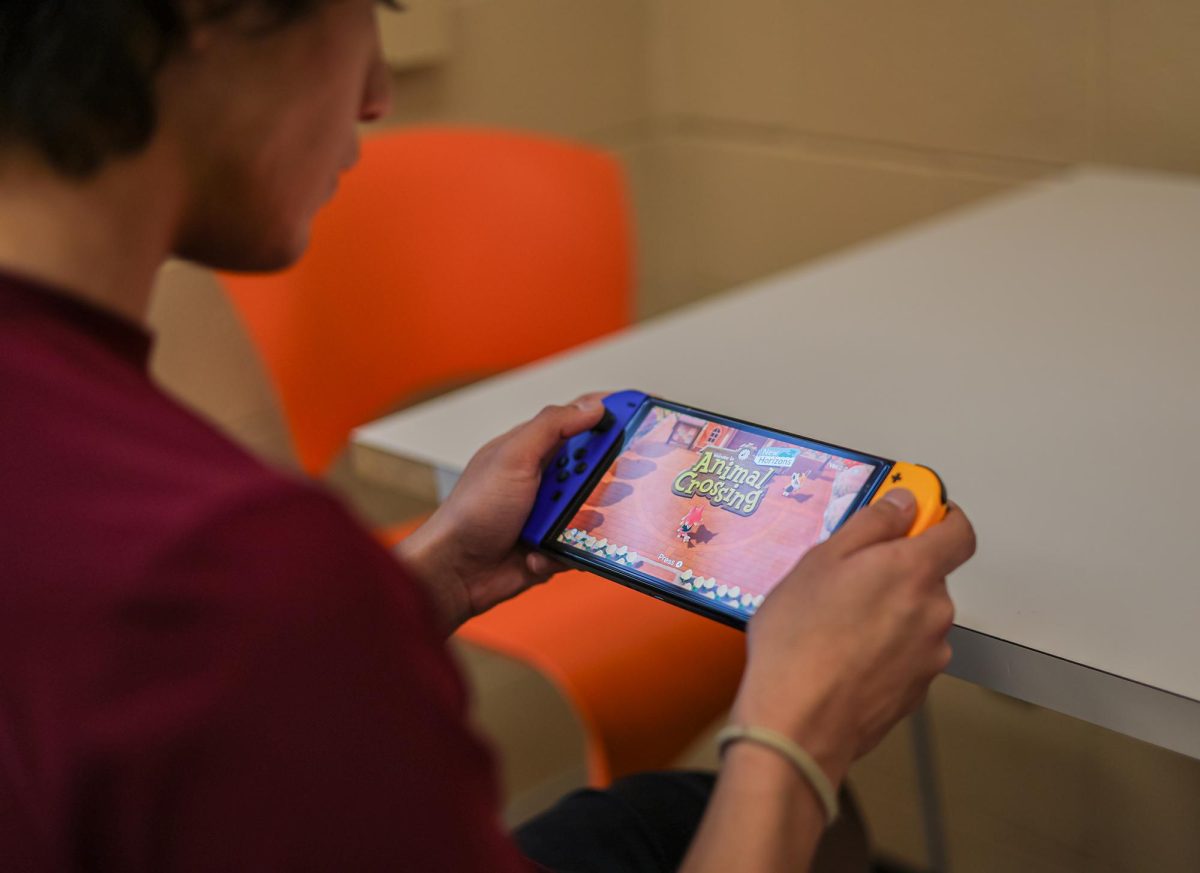The cozy game genre’s namesake was coined by gamers to group together games that bring comfort, have wholesome characters, joyful color palettes and open-ended objectives that emphasize self-paced game progression.
According to a study published by the National Library of Medicine, the attraction to cozy games is natural, and popular amongst young adults and is pivotal to forming healthy coping mechanisms and developing an astute form of self-awareness that translates into improved regulatory positive behavior when confronted with negative emotions.
Superficial qualities have inundated the gaming community with the assumption that it is an inadequate form of gaming– there has been a dismissive stance when discussing cozy games and rendering them as “not actual games” due to their cozy nature, but as a matter of fact, cozy games have been deeply imbued with effective storytelling and cozy charm to explore complex themes.
Members of the student organization at the University of Texas at El Paso (UTEP), Bandit Game Studio, further cement the unique nature of cozy games while also approaching it with curiosity as to what constitutes a cozy game and its characteristics.
“If you intend to make a very traditional cozy game, like Stardew Valley, then I think the narrative and the gameplay kind of complement each other to make it cozy. But I feel like it really depends on how you design that gameplay for it because I consider Hollow Knight to be somewhat of a cozy game, but its storyline isn’t cozy,” said Jorge Molina, one of Bandit Game Studio’s administrators.
While the term “cozy game” is subject to an influx of definitions and characteristics, a consensus is its ability to provide emotional comfort. President of Bandit Game Studio, Moin Nonami and administrators expressed that while they do have to carve out time to play games at all, when they do choose cozy games it’s for their relaxing qualities.
“I’d lean more towards cozy games that are kind of like repetitive tasks. I do like that in a way, my brain stops thinking and I can just continue to get the satisfaction of I’m winning but without having to think too much,” Nonami said.
Likewise, an undergraduate student at UTEP, history major Andrea Cazares-Lopez, seeks an outlet away from her studies in the form of pixels. To her, the appeal of a cozy game comes from the long-standing relationship of nostalgia and escapism, particularly associated with “My Sims.”
“My Sims,” a game with the premise of the user, being a renowned builder, are invited by the mayor to improve the conditions of the town after it’s been abandoned by previous sim inhabitants and have the freedom to personalize the town.
“When I was a little kid, that was the first Wii game I got,” Cazares said, ‘‘It’s a really comforting game. I love building and I’m a very creative individual.”
Cazares further accredits “My Sims” as being an outlet for relaxation when school becomes overwhelming. The ability to turn on her Nintendo Switch to play the game, complete different tasks and be rewarded for it is a nice escape when free time from school is possible.
A study published by Maria Önnberg for the University of Skövde explores the correlation between narrative and comprehensive characteristics of cozy games and how they influence immersion. The ingredients of a cozy game, its music, storytelling, and graphics, all come together and provide an emotional stasis.
Cozy games are effective mediums to convey overlapping themes in a digestible format, they are games “that strive to confront the players with grief, loss and loneliness but to also represent the struggles of mental health,” that allows time for self-reflection and “give players space to deal with emotional social maintenance and growth” as Önnberg writes. All create avenues for relatability when creating a well-rounded user immersion.
Upcoming cozy game releases are “Tales of the Shire,” a Lord of the Rings game with a Stardew touch, where you play as a Hobbit enjoying life in the idyllic Middle-Earth, which is set to release on March 25, and “Wanderstop,” where you are Alta, a retired warrior who finds healing in managing a tea shop, expected to release on March 11.
Jazmine Gracia is a contributor for The Prospector and can be reached [email protected].









